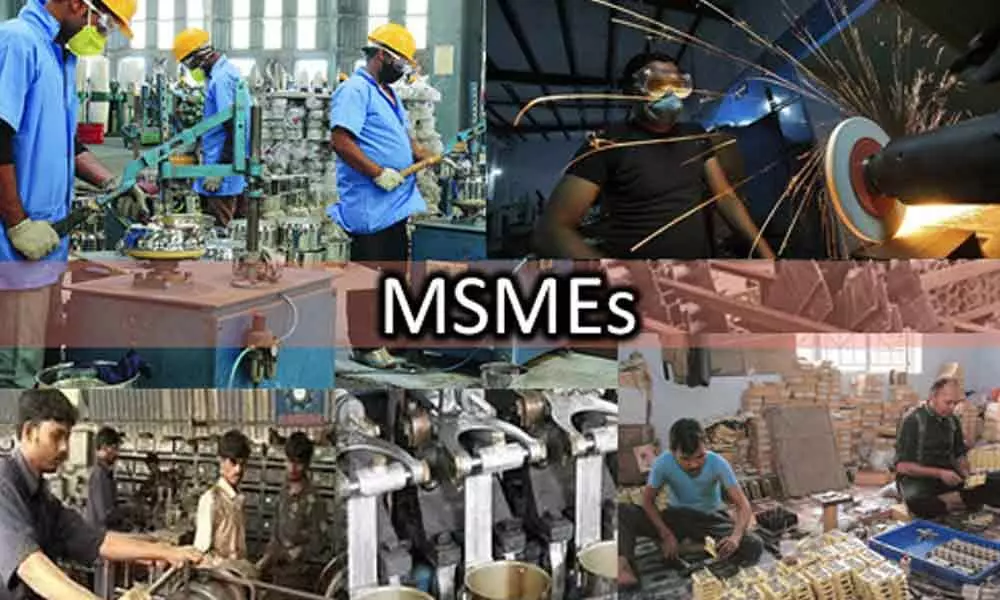PROMOTING MSME
Promoting MSMEs: Strengthening the Backbone of the Economy
“Small businesses, big impact.” Micro, Small, and Medium Enterprises (MSMEs) play a crucial role in driving economic growth, creating jobs, and fostering innovation. By supporting and promoting MSMEs, we empower communities, reduce unemployment, and encourage inclusive development across both urban and rural areas.
Why MSMEs Matter:
💼 Employment Generation: MSMEs are among the largest job creators, especially for youth and marginalized communities.
🌱 Economic Growth: They contribute significantly to GDP and help diversify the economy.
🧠 Innovation and Flexibility: MSMEs are agile, creative, and responsive to local and global market needs.
🌍 Balanced Development: They help bridge the urban-rural divide by bringing economic activity to smaller towns and villages.
How to Promote MSMEs:
Access to Finance:
Facilitate low-interest loans, microfinancing, and credit guarantee schemes.
Encourage banks and fintech platforms to support small entrepreneurs.
Skill Development and Training:
Offer business training, mentorship programs, and digital literacy workshops for entrepreneurs.
Support women-led and youth-led enterprises.
Ease of Doing Business:
Simplify registration, taxation, and compliance procedures.
Provide digital platforms for marketing, e-commerce, and exports.
Government and Policy Support:
Ensure that MSMEs benefit from subsidies, incentives, and government procurement policies.
Develop incubation centers and industrial clusters.
Micro, Small and Medium Enterprises (MSME) sector has emerged as a highly vibrant and dynamic sector of the Indian economy over the last five decades. MSMEs not only play crucial role in providing large employment opportunities at comparatively lower capital cost than large industries but also help in industrialization of rural & backward areas, thereby, reducing regional imbalances, assuring more equitable distribution of national income and wealth. MSMEs are complementary to large industries as ancillary units and this sector contributes enormously to the socio-economic development of the country.
Khadi is the proud legacy of our national freedom movement and the father of the nation. Khadi and Village Industries (KVI) are two national heritages of India. One of the most significant aspects of KVI in Indian economy is that it creates employment at a very low per capita investment. The KVI Sector not only serves the basic needs of processed goods of the vast rural sector of the country, but also provides sustainable employment to rural artisans. KVI today represent an exquisite, heritage product, which is ‘ethnic’ as well as ethical. It has a potentially strong clientele among the middle and upper echelons of the society.
Coir Industry is an agro-based traditional industry, which originated in the state of Kerala and proliferated to the other coconut producing states like Tamil Nadu, Karnataka, Andhra Pradesh, Orissa, West Bengal, Maharashtra, Assam, Tripura, etc. It is an export oriented industry and having greater potential to enhance exports by value addition through technological interventions and diversified products like Coir Geotextiles etc. The acceptability of Coir products has increased rapidly due to its ‘environment friendly’ image.
Ministry of Micro, Small & Medium Enterprises (M/o MSME) envision a vibrant MSME sector by promoting growth and development of the MSME Sector, including Khadi, Village and Coir Industries, in cooperation with concerned Ministries/Departments, State Governments and other Stakeholders, through providing support to existing enterprises and encouraging creation of new enterprises.
Empowering MSMEs is Empowering the Nation
When we invest in MSMEs, we invest in self-reliance, innovation, and inclusive economic growth. Let’s build a strong support system for our small business heroes and ensure they thrive in a competitive and digital future.
The Micro; Small and Medium Enterprises Development (MSMED) Act was notified in 2006 to address policy issues affecting MSMEs as well as the coverage and investment ceiling of the sector. The Act seeks to facilitate the development of these enterprises as also enhance their competitiveness. It provides the first-ever legal framework for recognition of the concept of “enterprise” which comprises both manufacturing and service entities. It defines medium enterprises for the first time and seeks to integrate the three tiers of these enterprises, namely, micro, small and medium. The Act also provides for a statutory consultative mechanism at the national level with balanced representation of all sections of stakeholders, particularly the three classes of enterprises; and with a wide range of advisory functions. Establishment of specific funds for the promotion, development and enhancing competitiveness of these enterprises, notification of schemes/programmes for this purpose, progressive credit policies and practices, preference in Government procurements to products and services of the micro and small enterprises, more effective mechanisms for mitigating the problems of delayed payments to micro and small enterprises and assurance of a scheme for easing the closure of business by these enterprises are some of the other features of the Act.
